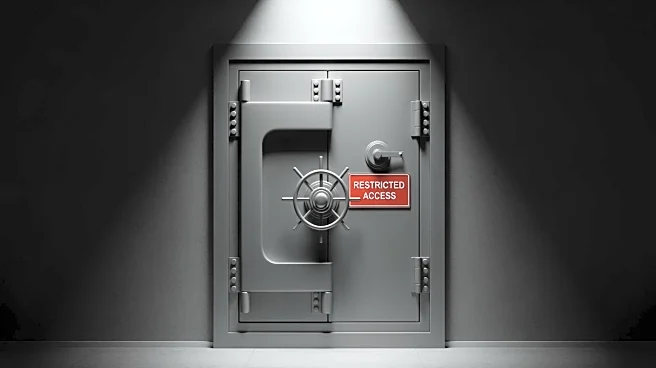What's Happening?
President Trump has redirected Pentagon funds to ensure military pay during the ongoing government shutdown, citing historical precedents from past presidents. This move, however, has been criticized for
sidestepping Congress's constitutional control over federal spending. The administration argues that repurposing unobligated defense funds is necessary to prevent missed paychecks for troops, citing examples from Presidents George Washington and John F. Kennedy. The decision involves reallocating approximately $8 billion from Pentagon research and development accounts, raising legal debates about compliance with the Antideficiency Act.
Why It's Important?
The redirection of Pentagon funds during a government shutdown highlights tensions between the executive branch and Congress over budgetary control. This action could set a precedent for future administrations, potentially altering the balance of power in federal spending decisions. The move affects military readiness and the financial stability of service members, while also impacting Democrat-led states through withheld funds. The broader implications for public policy and governance include potential shifts in how executive power is exercised during fiscal crises.
What's Next?
Legal experts are debating the compliance of this fund redirection with existing laws, which may lead to judicial challenges. The administration's actions during the shutdown, including attempts to lay off federal workers, could face further legal scrutiny. The ongoing political standoff over budgetary measures may continue, with each side accusing the other of refusing to negotiate. Observers are watching for potential resolutions or escalations in this fiscal conflict.
Beyond the Headlines
The use of historical precedents to justify executive actions raises questions about the interpretation of presidential powers and the role of historical context in modern governance. The ethical considerations of bypassing congressional authority in budgetary matters are significant, potentially affecting trust in government institutions and the democratic process.










